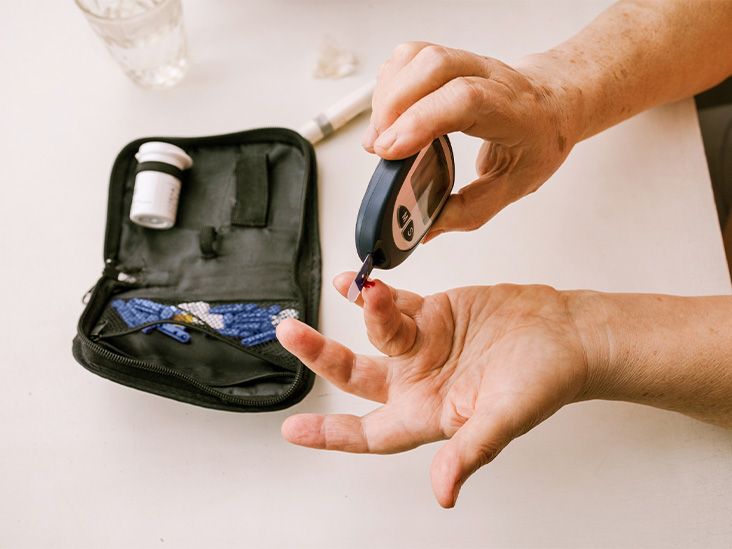As with other drugs, Emflaza (deflazacort) can cause side effects, such as weight gain and cough. If you are not able to tolerate side effects of Emflaza, talk with your doctor or pharmacist.
Emflaza (deflazacort) is a brand-name drug that’s prescribed for Duchenne muscular dystrophy (DMD) in adults and children ages 2 years and older.
If you have problems with side effects from Emflaza, talk with your doctor or pharmacist. They can discuss ways to manage side effects or other available treatment options. Do not stop taking Emflaza without consulting your doctor first.
Emflaza can cause certain side effects, some of which are more common than others. These side effects may be temporary, lasting a few days to weeks. However, if the side effects persist, bother you, or become severe, be sure to talk with your doctor or pharmacist.
These are just a few of the more common side effects reported by people who took Emflaza in clinical trials:
- Cushing syndrome
- weight gain
- cough
- increased appetite
- upper respiratory infection, such as the common cold
For more information about some of these side effects, see the “Managing side effects” section.
Mild side effects can occur with Emflaza use. This list does not include all possible mild side effects of the drug. For more information, you can refer to Emflaza’s prescribing information.
Mild side effects that have been reported with Emflaza include:
- weight gain
- cough (see “Managing side effects”)
- increased appetite
- abdominal pain
- changes in levels of electrolytes such as sodium, calcium, and potassium
- hirsutism (unusual hair growth on your body)
- frequent urination
- irritability
- runny nose
- water retention
- mild infection, such as urinary tract infection (UTI), influenza (flu), and ear infections
These side effects may be temporary, lasting a few days to weeks. However, if the side effects continue, worsen, or become too difficult to tolerate, be sure to talk with your doctor or pharmacist.
Note: After the Food and Drug Administration (FDA) approves a drug, it tracks and reviews side effects of the medication. Sharing your experience helps make medications safer for everyone by giving doctors and researchers more information about how the drug works in real life. If you develop a side effect while taking Emflaza and want to tell the FDA about it, visit MedWatch or call 800-FDA-1088.
Emflaza may cause serious side effects. The following list may not include all possible serious side effects of the drug. For more information, you can refer to Emflaza’s prescribing information.
If you develop serious side effects while taking Emflaza, call your doctor right away. If the side effects seem life threatening or you think you’re having a medical emergency, immediately call 911 or your local emergency number.
Serious side effects that have been reported and their symptoms include:
- serious rash, which can be a symptom of toxic epidermal necrolysis (TEN), which can cause other symptoms such as:
- painful skin blistering or peeling
- body aches
- fever
- blood clots, which can cause symptoms such as:
- chest pain
- warmth, pain, or swelling in your arms or legs
- shortness of breath
- eye problems such as eye infection, cataracts, or glaucoma, which can cause symptoms such as:
- blurry vision
- eye pain
- vision loss
- changes in mood or behavior changes, which may include symptoms such as:
- depression
- euphoria (feeling “high”)
- mania (moments of extremely high energy and excitement)
- suicidal thoughts
- bone loss, which can cause symptoms such as:
- joint pain
- fractures (broken bones)
- high blood sugar, which can cause symptoms such as:
- blurry vision
- urinating more often than is typical
- increased hunger or thirst
- Kaposi sarcoma, which can cause symptoms such as:
- skin nodules (bumps), plaques, or patches, typically on the face or legs
- diarrhea
- breathlessness
- high blood pressure, which typically does not cause symptoms unless the condition is severe, which may cause symptoms such as:
- sweating
- nosebleeds
- headache
- serious infection, such as include chickenpox and measles, which can cause symptoms such as:
- chills
- fatigue
- fever
- Cushing syndrome (see “Managing side effects”)
Allergic reactionFor some people, Emflaza can cause an allergic reaction.
But this side effect wasn’t reported in the drug’s studies. However, allergic reaction has been reported after Emflaza became available for prescription.
In general, symptoms of allergic reaction can be mild or serious.
Ways to manage
For mild allergic reaction symptoms, such as a mild rash, call your doctor right away. They may recommend treatments to help manage your symptoms. They’ll also let you know whether you should keep taking the medication.
For severe allergic reaction symptoms, such as swelling or trouble breathing, call 911 or your local emergency number right away. These symptoms require immediate medical care because they can become life threatening. If you’ve had a serious allergic reaction to Emflaza, your doctor may recommend taking a different medication instead.
While taking Emflaza, you may be able to take steps to make side effects easier to manage.
If you have problems with side effects that do not go away or worsen, talk with your doctor or pharmacist. They can discuss options for managing side effects or other available treatment options.
Cushing syndrome
Cushing syndrome was a common side effect reported in studies of Emflaza. This condition is caused by a high level of cortisol in the blood. Symptoms of Cushing syndrome may include weight gain and bruising more easily.
Talk with your doctor if you’re concerned about Cushing syndrome while taking Emflaza. They can recommend ways to lower your risk of this side effect, such as taking the drug for only a short time.
If you need to stop taking Emflaza, your doctor will slowly lower your dose over time. Suddenly stopping taking Emflaza can lead to adrenal insufficiency, which may cause severe fatigue, nausea, or low blood pressure. If you experience these symptoms after stopping Emflaza, talk with your doctor right away.
Cough
Cough was a common side effect reported in studies of Emflaza. Steps you can take to manage symptoms associated with this side effect include:
- taking over-the-counter cough medications
- adding honey to your tea or water
Before taking Emflaza, discuss your health history with your doctor. Emflaza may not be right for you if you have certain medical conditions or other factors affecting your health. Be sure to talk with your doctor if any of the following apply to you:
- eye problems
- diabetes
- stomach problems, such as diverticulitis, ulcers, and ulcerative colitis
- heart failure
- high blood pressure
- osteoporosis or osteonecrosis
- kidney problems
- hepatitis B virus
- pheochromocytoma
- overactive or underactive thyroid
- previous allergic reaction to this or a similar drug
- pregnancy
- breastfeeding
Help is out there
If you or someone you know is in crisis and considering suicide or self-harm, please seek support:
- Call or text the 988 Lifeline at 988 or chat at 988lifeline.org. Caring counselors are available to listen and provide free and confidential support 24/7.
- Text HOME to the Crisis Text Line at 741741 to connect with a volunteer crisis counselor for free and confidential support 24/7.
- Not in the United States? Find a helpline in your country with Befrienders Worldwide.
- Call 911 or your local emergency services number if you feel safe to do so.
If you’re calling on behalf of someone else, stay with them until help arrives. You may remove weapons or substances that can cause harm if you can do so safely.
If you’re not in the same household, stay on the phone with them until help arrives.
Disclaimer: Medical News Today has made every effort to make certain that all information is factually correct, comprehensive, and up to date. However, this article should not be used as a substitute for the knowledge and expertise of a licensed healthcare professional. You should always consult your doctor or another healthcare professional before taking any medication. The drug information contained herein is subject to change and is not intended to cover all possible uses, directions, precautions, warnings, drug interactions, allergic reactions, or adverse effects. The absence of warnings or other information for a given drug does not indicate that the drug or drug combination is safe, effective, or appropriate for all patients or all specific uses.


